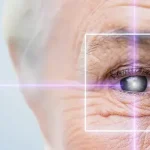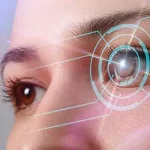Uveitis is a condition that affects the eye and can lead to serious complications if left untreated. It is characterized by inflammation of the uvea, which is the middle layer of the eye that contains the iris, ciliary body, and choroid. The uvea plays a crucial role in supplying blood and nutrients to the eye, so any inflammation in this area can have a significant impact on vision.
Uveitis can occur in one or both eyes and can affect people of all ages. The exact cause of uveitis is often unknown, but it is believed to be associated with autoimmune disorders, infections, and trauma. In this article, we will explore the various aspects of uveitis, including its definition, symptoms, causes, and treatment options.
What Is Uveitis?
Uveitis is a condition characterized by inflammation of the uvea, which is the middle layer of the eye. The uvea is responsible for supplying blood and nutrients to the eye, so any inflammation in this area can have a significant impact on vision. It can be acute, lasting only a few weeks, or chronic, lasting for months or even years.
When the uvea becomes inflamed, it can cause various uveitis symptoms such as eye redness, pain, blurred vision, sensitivity to light, and floaters. The severity of these symptoms can vary depending on the type and location of the uveitis.
How Does Uveitis Affect Eyes?
Uveitis can affect different parts of the uvea, leading to different types of uveitis, including anterior uveitis, intermediate uveitis, posterior uveitis, and panuveitis. Each type of uveitis has its own set of symptoms and complications. It is important to understand how uveitis affects your eyes so that you can seek timely medical attention and prevent any potential complications.
What Are the Types of Uveitis?
Uveitis can be classified into different types based on the part of the uvea that is affected. The main types of uveitis include:
Anterior uveitis: This type affects the front part of the uvea, including the iris and ciliary body. It is the most common type of uveitis and often presents with symptoms like eye redness, pain, and sensitivity to light.
Intermediate uveitis: This type affects the middle part of the uvea, known as the vitreous. It is often characterized by floaters and blurred vision.
Posterior uveitis: This type affects the back part of the uvea, including the choroid. It can cause symptoms like blurred vision, floaters, and loss of peripheral vision.
Panuveitis: This type affects the entire uvea and can involve all parts of the eye. It is the most severe form of uveitis and can lead to significant vision loss if left untreated.
Each type of uveitis requires specific treatment and management strategies, so it is important to accurately diagnose the type of uveitis before initiating treatment.
Identifying the Symptoms of Uveitis
Uveitis can cause various symptoms that can vary depending on the type and location of the inflammation. Some common symptoms of uveitis include:
- Eye redness
- Eye pain
- Blurred vision
- Sensitivity to light
- Floaters
- Decreased vision
If you experience any of these Uveitis symptoms, it is important to see an eye doctor for a proper diagnosis and treatment. Early detection and treatment can help prevent further complications and preserve your vision.
Common Causes and Risk Factors of Uveitis
The exact cause of uveitis is often unknown, but there are several factors that can increase the risk of developing this condition. Some common Uveitis causes and risk factors of uveitis include:
- Autoimmune disorders, such as rheumatoid arthritis and lupus
- Infections, including viral, bacterial, and fungal infections
- Trauma or injury to the eye
- Certain medications
- Genetic predisposition
- Other underlying health conditions
It is important to identify and address these Uveitis causes and risk factors to effectively manage uveitis and prevent recurrent episodes.
Diagnosing Uveitis: Methods and Challenges
Diagnosing uveitis can be challenging due to its various types and potential underlying causes. However, there are several methods that eye doctors use to diagnose uveitis, including:
Comprehensive eye examination: This involves a detailed examination of the eye to assess various Uveitis symptoms, visual acuity, and the presence of inflammation.
Medical history review: This helps identify any underlying health conditions or potential triggers for uveitis.
Laboratory tests: Blood tests and other laboratory tests can help identify infections, autoimmune disorders, or other underlying causes of uveitis.
Imaging tests: Imaging tests like optical coherence tomography (OCT) and fluorescein angiography can provide detailed images of the eye and help identify any structural abnormalities.
It is important to consult an experienced eye doctor for an accurate diagnosis of uveitis as early detection can greatly improve the outcomes.
Effective Treatment Options for Uveitis
The treatment of uveitis aims to reduce inflammation, relieve symptoms, and prevent complications. The specific treatment approach depends on the type and severity of uveitis, as well as the underlying cause. Some common treatment options for uveitis include:
Corticosteroid eye drops: These eye drops help reduce inflammation and relieve symptoms.
Oral corticosteroids: In severe cases or when eye drops are not sufficient, oral corticosteroids may be prescribed.
Immunosuppressive drugs: These medications help suppress the immune system and reduce inflammation in cases of chronic or recurrent uveitis.
Biologic agents: These newer medications target specific molecules involved in the inflammatory process and can be effective in controlling uveitis.
Surgery: In some cases, surgery may be required to address complications of uveitis, such as cataracts or glaucoma.
It is important to work closely with an ophthalmologist to develop an individualized treatment plan for uveitis based on your specific condition and needs.
Risks and Complications of Uveitis If Left Untreated
Uveitis can lead to several risks and complications if left untreated. Some potential risks and complications of uveitis include:
- Vision loss: Uveitis can cause permanent damage to the eye and lead to vision loss, especially if the macula or optic nerve is affected.
- Cataracts: Chronic inflammation in the eye can increase the risk of developing cataracts, which can further impair vision.
- Glaucoma: Uveitis can increase intraocular pressure, leading to glaucoma, a condition that damages the optic nerve and can result in vision loss.
- Retinal detachment: In severe cases, uveitis can cause the retina to detach from the underlying tissue, leading to vision impairment.
To prevent these risks and complications, it is crucial to seek early medical intervention and adhere to the recommended treatment plan.
Preventive Tips for Uveitis
While the exact cause of uveitis is often unknown, there are certain preventive measures that can help reduce the risk of developing this condition or experiencing recurrent episodes. Some preventive tips for uveitis include:
- Practice good hygiene: Wash your hands regularly and avoid touching your eyes with dirty hands to reduce the risk of infections.
- Protect your eyes: Wear protective eyewear when engaging in activities that could potentially cause eye injuries.
- Manage underlying health conditions: If you have an autoimmune disorder or any other underlying health condition, work closely with your healthcare provider to manage it effectively and reduce the risk of uveitis.
- Follow a healthy lifestyle: Maintain a balanced diet, exercise regularly, and get enough sleep to support overall eye health and immune function.
- Regular eye exams: Schedule regular eye exams with an ophthalmologist to detect any signs of uveitis early on and prevent complications.
By following these preventive tips, you can take proactive steps to safeguard your eye health and reduce the risk of uveitis.
Conclusion
In conclusion, uveitis is a complex and potentially serious condition affecting the eye’s uvea, often characterized by inflammation that can lead to various Uveitis symptoms ranging from mild discomfort to severe vision impairment. Prompt diagnosis and treatment are crucial to prevent complications and preserve vision. With a better understanding of its causes, symptoms, and treatment options, individuals and healthcare providers can work together to manage uveitis effectively and improve quality of life for those affected by this challenging eye disorder.
FAQs
Can uveitis lead to permanent vision loss?
Yes, if not promptly treated, uveitis can lead to permanent vision loss.
What is uveitis?
Uveitis is inflammation of the uvea, the middle layer of the eye.
Is uveitis common?
It is relatively uncommon, affecting about 50-115 per 100,000 people annually.
What are the types of uveitis?
Types include anterior, intermediate, posterior, and panuveitis, depending on the part of the uvea affected.
Can uveitis recur after successful treatment?
Yes, uveitis can recur, even after successful treatment.
What is the typical age group affected by uveitis?
Uveitis can affect people of all ages, but it often occurs between 20 and 50 years old.
Can uveitis affect both eyes simultaneously?
Yes, uveitis can affect one or both eyes simultaneously.
How often should individuals with uveitis undergo eye examinations?
Regular eye examinations every 3 to 6 months are recommended for individuals with uveitis.
Can uveitis be cured?
While uveitis can often be managed effectively, it may not be completely cured in all cases.
What is the main cause of uveitis?
In many cases, the exact cause of uveitis is unknown, but it can be associated with infections, autoimmune diseases, or trauma.
What is the best medicine for uveitis?
Treatment typically involves corticosteroid eye drops or injections, and sometimes immunosuppressive drugs.
Can you live a normal life with uveitis?
Yes, with proper management and treatment, many people with uveitis can lead normal lives and maintain good vision. Regular monitoring and adherence to treatment are key.





